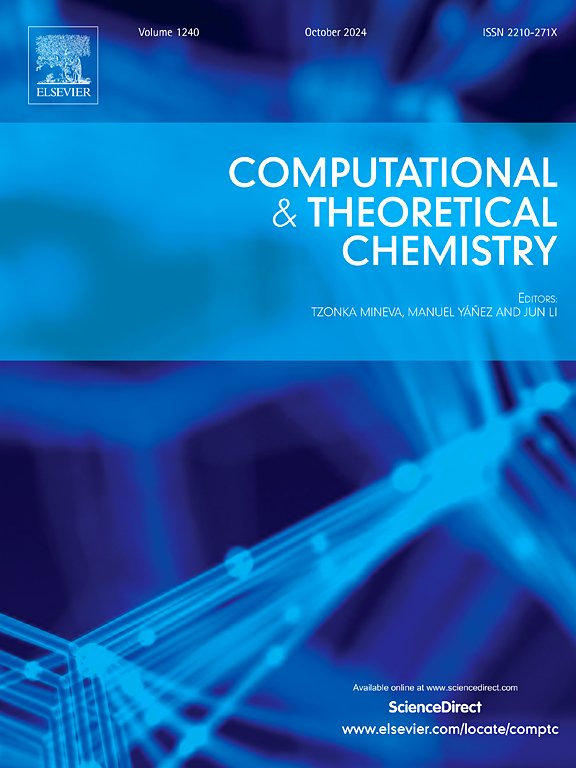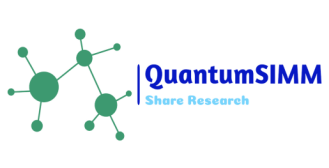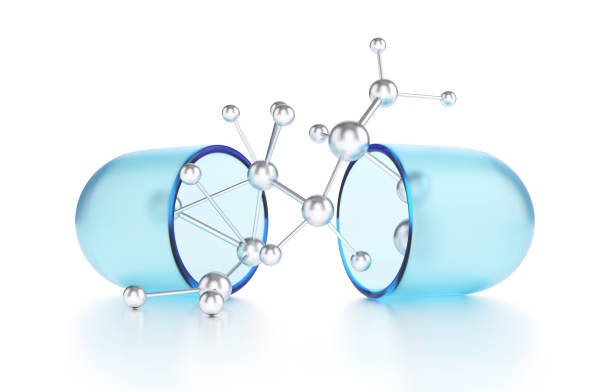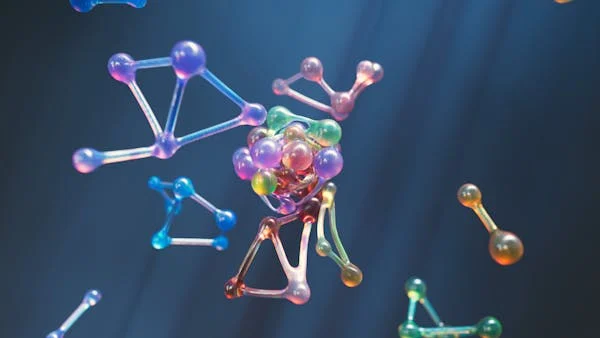
Exploring the Frontier: Journals in Computational Chemistry
In computational chemistry, there are several reputable journals where researchers can publish their work. Here are some of the top journals in this field:
- Journal of Chemical Theory and Computation (JCTC): Published by the American Chemical Society, JCTC covers a broad spectrum of topics in theoretical and computational chemistry. The Journal of Chemical Theory and Computation is a bi-weekly, peer-reviewed publication dedicated to presenting cutting-edge research in theories, and methodologies related to quantum electronic structure, molecular dynamics, statistical mechanics, and their significant applications. Impact Factor: 5.5
- Journal of Computational Chemistry: This journal publishes papers covering all aspects of computational chemistry, including method development, applications, and theoretical studies. The Journal of Computational Chemistry is a premier platform for disseminating original research, showcasing contemporary advancements in both theory and methodology and highlighting state-of-the-art applications across various domains. Journal of Computational Chemistry scope is comprehensive, encompassing all facets of computational chemistry, including but not limited to analytical, biological, inorganic, organic, physical, material, and theoretical studies. Journal of Computational Chemistry invites contributions that push the boundaries of computational techniques, offer innovative insights, and address pressing challenges in the field. Join the Journal of Computational Chemistry in shaping the future of computational chemistry through rigorous scientific inquiry and interdisciplinary collaboration. Acceptance rate: 33% Impact Factor: 3
- Chemical Physics Letters: While not exclusively focused on computational chemistry, Chemical Physics Letters publishes papers reporting on significant developments in computational methods and their applications in chemistry. Chemical Physics Letters disseminates concise reports covering a wide range of topics including molecules, interfaces, condensed phases, nanomaterials, nanostructures, polymers, biomolecular systems, and energy conversion and storage. Chemical Physics Letters publication criteria prioritize quality, urgency, and impact. Chemical Physics Letters seek submissions where experimental findings directly inform theory, and where theoretical advancements or unconventional computational approaches directly correspond to experimental outcomes. Manuscripts are expected to meet these rigorous criteria and should offer significant contributions to the field, avoiding merely incremental extensions of prior research. Impact Factor: 2.8
- Computational and Theoretical Chemistry: Computational and Theoretical Chemistry is a prestigious journal committed to showcasing original, high-quality research with significant implications for computational and theoretical chemistry. The journal welcomes submissions addressing a diverse array of topics, including but not limited to the elucidation of structural properties, energetic profiles, interactions, reaction mechanisms, catalytic processes, and reaction kinetics. The journal’s scope encompasses investigations involving atoms, molecules, clusters, surfaces, and bulk materials. Computational and Theoretical Chemistry encourage contributions that employ advanced computational methods, theoretical frameworks, and innovative approaches to tackle fundamental questions and practical challenges in chemistry. Whether exploring the intricate dynamics of molecular systems or unraveling the complexities of catalytic processes, Computational and Theoretical Chemistry seek manuscripts that offer novel insights, foster interdisciplinary collaborations, and contribute to the advancement of the field. Join this journal in shaping the future of computational and theoretical chemistry through groundbreaking research and scholarly excellence. Impact Factor: 2.8

- Theoretical Chemistry Accounts: TCA (Theoretical Chemistry Accounts) is dedicated to disseminating high-quality papers across the spectrum of theoretical chemistry, computational chemistry, and modeling. As a leading forum in the field, our journal serves as a platform for both fundamental inquiries and practical applications alike. TCA recognizes that theorists and computational chemists often confront unique challenges that transcend traditional disciplinary boundaries. Whether probing the intricacies of molecular structure, elucidating spectral properties, predicting synthesis pathways, or unraveling dynamic behavior, the journal welcomes contributions that bridge vertical divides within chemistry disciplines or traverse horizontal boundaries across various chemical phenomena. With a commitment to excellence and innovation, TCA seeks to advance the frontiers of theoretical and computational chemistry, fostering interdisciplinary dialogue and driving impactful research that addresses complex scientific questions and real-world challenges. Join TCA in shaping the future of theoretical chemistry and computational modeling through rigorous scholarship and scholarly exchange. Impact Factor: 1.7
- Physical Chemistry Chemical Physics (PCCP): The journal maintains an expansive scope, inviting submissions that encompass experimental investigations, theoretical inquiries, computational analyses, and data science applications. PCCP topical coverage spans a wide array of domains, including spectroscopy, dynamics, kinetics, statistical mechanics, thermodynamics, electrochemistry, catalysis, surface science, quantum mechanics, quantum computing, and machine learning. PCCP enthusiastically embraces interdisciplinary research endeavors, particularly those exploring areas such as polymers and soft matter, materials science, nanoscience, energy studies, surface/interface phenomena, and biophysical chemistry. Submissions in these interdisciplinary fields are encouraged, provided they offer substantial innovation and provide insightful contributions to physical chemistry. Furthermore, PCCP highly values collaborative efforts that integrate experimental and theoretical approaches, especially when they leverage contemporary methodologies. Contributions that demonstrate complementary perspectives and utilize state-of-the-art techniques are particularly appreciated, as they enrich our understanding of complex chemical systems and phenomena. Impact Factor: 3.3
- Chemistry – A European Journal: Chemistry—A European Journal serves as a cornerstone for our esteemed community, fostering scientific inspiration and advancement through swift, authoritative research dissemination. We pride ourselves on offering a platform for outstanding multidisciplinary chemistry studies worldwide. With rigorous editorial standards, we facilitate the publication of original, groundbreaking research and comprehensive topical reviews across all realms of the chemical sciences. Our scope encompasses fundamental chemistry as well as applied research, extending to intersections with diverse fields such as biology, materials science, and physics. Impact Factor: 4.3
Remember to check the specific focus and scope of each journal before submitting your manuscript to ensure it aligns well with the journal’s interests and audience. Additionally, consider factors such as impact factor, reputation, and review process when selecting a journal for publication. While these journals primarily operate on a subscription basis, they do offer an open-access publishing option. Depending on the manuscript type and the nature of the computational chemistry research, authors might also consider submitting their work to alternative journals like ChemistrySelect (Impact Factor: 2), Journal of Physical Chemistry A (Impact Factor: 2.9), Journal of Molecular Modeling (Impact Factor: 2.2), and International Journal of Quantum Chemistry (Impact Factor: 2.2). These journals provide additional avenues for disseminating research findings and reaching broader audiences within the computational chemistry community.




